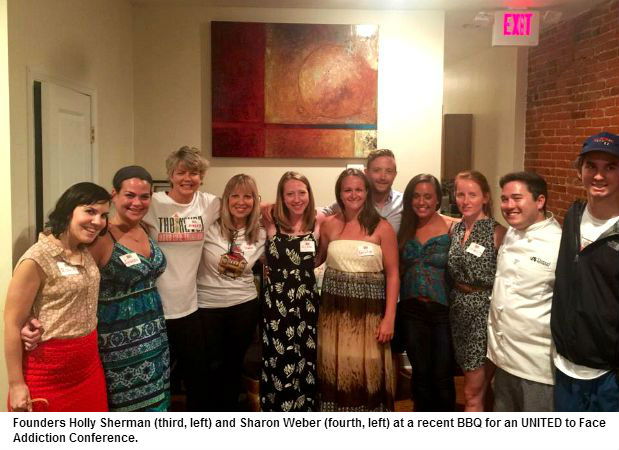People don’t usually enter college thinking about sobriety. In fact, it’s often times the very opposite. The idea of higher-education today has become so synonymous to drinking that students often anticipate holding more red cups than textbooks by the end of their college experience. In fact, statistics show that an estimated 1,825 college students die from alcohol-related injuries and thousands are taken to the emergency room for alcohol poisoning every year.[1]
One organization springing up on campuses is changing the image quite a bit. Started in January 2012, The Haven at College is an organization that provides a sober living environment for college students in recovery. Founders Holly Sherman and Sharon Weber first began exploring the idea of sober living facilities on campuses after spending time themselves in sober living as adults. Their goal was to “bring recovery out of the shadows and attack the negative stigma by demonstrating recovery as a cool, vibrant and fun lifestyle.” Now, with a total of five houses on different college campuses (four in California), The Haven serves to do just that for students transitioning out of treatment and into the high-risk environment of a college campus.
While The Haven Residence is not a treatment center, it is a place where students can support and live sobriety out together. There are 12-step recovery meetings held throughout the week led by young people and students who are part of the Haven community. Each house has an assigned male and female house manager who also acts as peer mentors. These individuals are there to provide overall support to the students and make sure that there are no substances in the house (or that no one is intoxicated).

Aly Ries is a house manager at Drexel University while also pursuing her Master’s in Social Work at University of Pennsylvania. One of her major goals in being involved with The Haven is to break the misconception that students are “missing out” if they’re not drinking in college. “We’ve been taught that the college party scene has to involve drinking, that drinking is so much of a vital part of the college experience,” she says. “But there is another side to it—an opportunity to do it a different way. Sometimes people need to see it to believe it.”
To show just how feasible this is, each Haven house has a Calendar of Events filled with sober events put on either by different young adult organizations in the area, or hosted by The Haven themselves. These events are all very well-attended, even attracting those who are not in the recovery community but are just looking for a night of fun that doesn’t involve drinking. “It could be a spaghetti dinner, a game night or a comedy show,” Aly says. “We also have a party here every year on Valentine’s Day called ‘Would You Still Date Me If I Wore This?’ and it’s a theme party that everyone gets into and dresses up really silly and just have some fun.” As she puts it, “I had a lot of fun at these parties in college. Why can’t they be just as much fun without alcohol?”

A big part of the college experience is making new friends and Haven students are given ample opportunity for deep and lasting relationships. Without alcohol or other substances as a buffer, along with the shared experience in addiction, students in the program often connect on a deep and personal level right off the bat. Weekly house meetings are a way for everyone to check in with each other and share how they’re doing in recovery. Staff members and residents are also involved in each other’s personal and academic growth as well, a kind of investment that goes beyond the surface-level engagement that typically surrounds college party culture.
Aly points out, “Something important about the recovery community is that it’s not just about not drinking or not using drugs, it’s really about bettering yourself and finding out what you like and achieving happiness.” Moving towards this goal together as a group encourages students to really enjoy and develop their interests more than they might if they were just going to the same party every night. In everything they do, the community strives to take care of themselves in healthy ways. “We cook meals together sometimes. We’ll go either to the gym or to a yoga class. A lot of the things are healthy because we are all trying to work on ourselves.”
The Haven is quickly expanding with plans to add residences and Intensive Outpatient Centers to several universities in 2016 and 2017. However, there’s a far greater need than what they can fill on their own. There are still many colleges that do not have the necessary resources. For students who do not have the advantage of a recovery community readily available, Aly says that it is important to be connected to a network of some sort that supports their walk in sobriety. She also advises being honest with themselves and others about their journey and “not being afraid to reach out for help.” These actions, with or without the help of an organization like The Haven, are bound to move an individual that much closer to his or her truest potential during arguably one of the most defining times in a person’s life.
And that, at the end of the day, is what a full college experience is all about.
References
[1] National Institute on Alcohol Abuse and Alcoholism. College Drinking. Retrieved on September 21, 2015 from http://pubs.niaaa.nih.gov/publications/CollegeFactSheet/CollegeFactSheet.pdf







